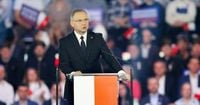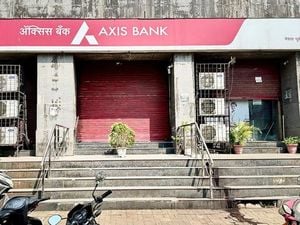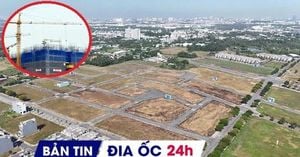In a surprising turn of events, Polish President Andrzej Duda publicly endorsed the candidacy of Karol Nawrocki, the candidate from the ruling Law and Justice Party (PiS), during an election convention held in Łódź on Sunday, April 27, 2025. This endorsement marks a significant shift for Duda, who had previously stated that the president "is not for giving official support" to any candidate.
During his speech at the convention, Duda did not hold back in expressing his support, declaring, "I, Andrzej Duda, having the same rights as you to go to the elections and cast my vote, will vote for Karol Nawrocki in these elections, because I believe that he is a person who will strive and do everything to make Poland a fair state, to make Poland a strong state, also on the international stage." His words were met with enthusiasm from the gathered supporters, as he encouraged them to mobilize for Nawrocki's campaign.
The endorsement was discussed in depth by journalists Radomir Wit, Piotr Kraśko, and Arleta Zalewska during the program "W kuluarach" on TVN24. Kraśko reminded viewers of Duda's earlier statement from November 2024, where he asserted that "the President of the Republic is not for giving official support to any of the candidates." This contradiction raised eyebrows and led to speculation about the motivations behind Duda's sudden change of heart.
Zalewska pointed out three key reasons that might have influenced Duda's decision. First, she suggested that the relationship between the president and the government has been tense, with reports indicating a lack of agreement on fundamental issues. Second, she indicated that Duda's political future may be at stake, suggesting that he might envision himself in a more prominent role, possibly even as a prime minister in the future. Lastly, she noted that Duda seems to sense that the upcoming elections in Poland are far from settled, with the potential for a tightly contested race.
Wit also highlighted the ambitions of Nawrocki's campaign team, who hope for a strong performance in the first round of the elections. He pointed out that there has been a visible effort to consolidate support around Nawrocki, especially as his name becomes synonymous with the PiS party. The presence of Duda at the convention serves as a crucial step in this consolidation process.
In response to Duda's endorsement, Marcin Mastalerek, a political analyst, explained that Duda's support for Nawrocki is rooted in a desire to continue the changes initiated during his own presidency, which began in 2015. Mastalerek argued that it is normal for politicians to adjust their perspectives based on evolving circumstances, drawing parallels to past endorsements in American politics, such as Barack Obama's support for Hillary Clinton in 2016.
However, the endorsement is not without its complexities. Kraśko pointed out that Duda's relationship with Sławomir Mentzen, a candidate from the Konfederacja party, has also played a role in this political maneuvering. Duda's meetings with Mentzen, which occurred on two occasions, might have posed a challenge for Nawrocki and the PiS party. This dynamic suggests that Duda is weighing his political alliances carefully as he navigates the upcoming elections.
As the political landscape continues to shift, Duda's endorsement of Nawrocki could significantly impact the election's outcome. With tensions within the government and the broader political spectrum, all eyes will be on how this endorsement influences voter mobilization and the strategies of competing candidates.
In conclusion, President Andrzej Duda's decision to endorse Karol Nawrocki represents a pivotal moment in Poland's political landscape as the country approaches a critical election. With the stakes higher than ever, the implications of Duda's support will unfold in the coming weeks, as both candidates strive to secure their positions in a rapidly changing political environment.




